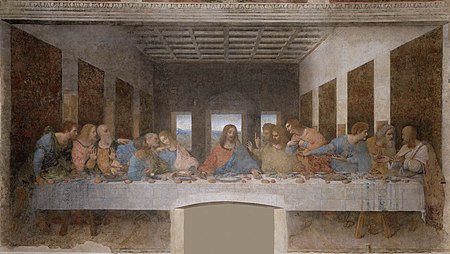
Salome was the Daughter of Herod II andHerodias.

Herod II (判耶穌死刑的人)
HBO, BO= box office
buffet NOUN
a meal at which all the food is put on a table and people go and choose what theywant
單字:
1.Compunction (n.) [kəmˋpʌŋkʃən]
a feeling that you should not do something because it is bad or wrong
e.g. He had no compunction about interfering in her private affairs.
2. Maverick (n.) [ˋmævərɪk]
an unusual person who has different ideas and ways of behaving from other people, and is often very successful
e.g. He's always been a bit of a maverick.
3. Serpent (n.) [ˋsɝpənt]
this word is commonly used in a specifically mythic or religious context, signifying a snake that is to be regarded not as a mundane natural phenomenon nor as an object of scientific zoology, but as the bearer of some potent symbolic value. Snakes have been associated with some of the oldest rituals known to humankind
e.g. A serpent that has betrayed your brother.
4. Pus (n.) [pʌs]
pus is a viscous exudate, typically whitish-yellow, yellow, or yellow-brown, formed at the site of inflammation during infection. An accumulation of pus in an enclosed tissue space is known as an abscess, whereas a visible collection of pus within or beneath the epidermis is known as a pustule or pimple
e.g. A wound oozing pus.
5. Inflammation (n.) [ɪnfləˋmeʃən]
inflammation is part of the complex biological response of vascular tissues to harmful stimuli, such as pathogens, damaged cells, or irritants
e.g. Many babies develop a mild inflammation in the eyes a few days after birth.
6. Diminutive (a.) [dəˋmɪnjətɪv]
in language structure, a diminutive, or diminutive form (abbreviated dim), is a formation of a word used to convey a slight degree of the root meaning, smallness of the object or quality named, encapsulation, intimacy, or endearment
e.g. The diminutive suffix -ling in "duckling" denotes affection.
7. Martinet (n.) [͵mɑrtnˋɛt]
the martinet is a punitive device traditionally used in France and other parts of Europe. The word also has other usages. It is also a term for a type of hammer in French, a diminutive of marteau
e.g. The woman in charge was a martinet who treated us like children.
8. Ethereal (a.) [ɪˋθɪrɪəl]
very delicate and light, in a way that does not seem real
e.g. His music is ethereal.
9. Mercurial (a.) [mɝˋkjʊrɪəl]
having feelings that change suddenly and without warning
e.g. An actor noted for his mercurial temperament.
10. Plausible (a.) [ˋplɔzəb!]
reasonable and likely to be true or successful
e.g. His story certainly sounds plausible.
11. Spurious (a.) [ˋspjʊrɪəs]
a spurious statement, argument etc is not based on facts or good thinking and is likely to be incorrect
e.g. He demolished the Opposition's spurious arguments.
12. Quixotic (a.) [kwɪkˋsɑtɪk]
quixotic ideas or plans are not practical and are based on unreasonable hopes of improving the world
e.g. This is a vast, exciting, and perhaps quixotic project.
13. Retort (v.) [rɪˋtɔrt]
to reply quickly, in an angry or humorous way
e.g. He retorted the invectives on her.
14. Obstinate (a.) [ˋɑbstənɪt]
determined not to change your ideas, behaviour, opinions etc, even when other people think you are being unreasonable
e.g. He was the most obstinate man I've ever met.
15. Creed (n.) [krid]
a creed is a statement of belief usually a statement of faith that describes the beliefs shared by a religious community and is often recited as part of a religious service. When the statement of faith is longer and polemical, as well as didactic, it is not called a creed but a Confession of faith. The term "creed" can also refer to a person's political or social beliefs or is sometimes used to mean religious affiliation
e.g. They hold no religious creed.
16. Peevish (a.) [ˋpivɪʃ]
easily annoyed by small and unimportant things
e.g. The kids were peevish after so long in the car.
17. Arduous (a.) [ˋɑrdʒʊəs]
involving a lot of strength and effort
e.g. The arduous task of loading all the boxes into the van.
18. Arbitrary (a.) [ˋɑrbə͵trɛrɪ]
decided or arranged without any reason or plan, often unfairly
e.g. This is an arbitrary decision.
19. Monotonous (a.) [məˋnɑtənəs]
boring because of always being the same
e.g. The preacher's monotonous voice put me to sleep.
20. Vanguard (n.) [ˋvæn͵gɑrd]
the vanguard is the leading part of an advancing military formation. It has a number of functions, including seeking out the enemy and securing ground in advance of the main force
e.g. They are in the vanguard of technological advance.
21. Concur (v.) [kənˋkɝ]
to agree with someone or have the same opinion as them
concur with
e.g. The committee largely concurred with these views.
22. Precociousness (n.) [prɪˋkoʃəsnɪs]
a precocious child shows intelligence or skill at a very young age, or behaves in an adult way, sometimes used to show disapproval in British English
e.g. A precocious child who walked and talked early.
23. Aloof (a.) [əˋluf]
unfriendly and deliberately not talking to other people
e.g. They worked hard, but tended to stay aloof from the local inhabitants.
24. Pragmatic (a.) [prægˋmætɪk]
dealing with problems in a sensible, practical way instead of strictly following a set of ideas
e.g. Williams took a more pragmatic approach to management problems.
25. Capricious (a.) [kəˋprɪʃəs]
likely to change your mind suddenly or behave in an unexpected way
e.g. She was as capricious as her mother had been.


 留言列表
留言列表


